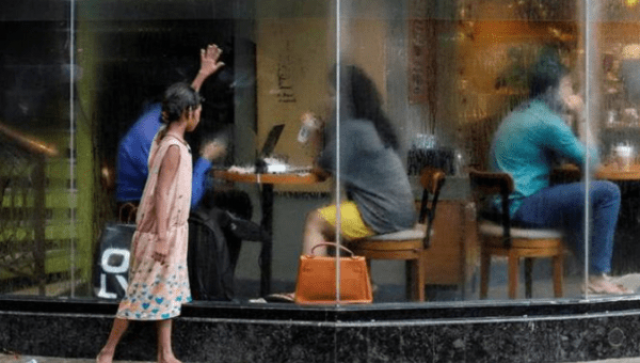Social security vs social evil
If we look in the mirror, we may find a familiar face responsible for the evil that ensures that the poor remains poor

PHOTO: REUTERS
But there is a problem.
Ehsas and all such programmes are at a massive risk. They are, of course, at risk because of poor execution and corruption within the system. They are also at risk because a future government may decide to roll it back. But there is a much bigger, existential risk.
That risk is us. Yes, privileged men who belong to the right sect, the right ethnicity, the right socio-economic class and feel a sense of entitlement against every other group. The programme is at risk because when women come to march to demand equality, we get nervous and start taking cheap shots at them. We start to attack their character and come on TV to defame them publicly. All of a sudden, we start to make bizarre statements about respecting the culture — the very same culture that is a construct and protector of our privilege and entitlement. We pass resolutions in the assembly and forget our political differences because our political affiliations come and go but our privilege must remain permanent. When a woman is beaten up by her husband, we find obscure religious and cultural arguments to justify the action of her husband. When all else fails we men argue that she was a woman of low character, and hence somehow deserved it.
The programme is at risk because when a teacher gets murdered by a bigot in Bahawalpur, not one senior politician goes to his house to grieve with the family. The programme is at risk because police is reluctant to field a complaint against champions of hate because they are too scared of them.
The programme is at risk because young Hindu girls, barely in their teens are abducted and “converted”. No adult Hindu women or young Hindu boys seem to benefit from our incredible evangelical powers. Not one senior politician has gone to the homes of the young Hindu girls to tell them that they will be reunited with their families.
Instead we find immense satisfaction in a hollow statement or a tweet of solidarity.
The desire to create social safety net is both noble and pure. But we have to recognise that countless poor are unable to emerge out of the depths of poverty not just because they have little money, but also because the society driven by privileged men justifies injustice, subjugation and violence against them. The desire by the poor to break the generational shackles of economic slavery is undercut by the club of the rich and powerful, and many of these rich and powerful are also regular visitors of the corridors of power.
If we are serious about poverty alleviation, social mobility and above all dignity to those who are marginalised, we have to look in our own circles — in our assemblies, among our advisers, and above all in our groups of family and friends. If we look in the mirror, we may find a familiar face responsible for the evil that ensures that the poor remains poor. That face is our own. It is time we have a talk with ourselves.
Published in The Express Tribune, April 2nd, 2019.
Like Opinion & Editorial on Facebook, follow @ETOpEd on Twitter to receive all updates on all our daily pieces.














COMMENTS
Comments are moderated and generally will be posted if they are on-topic and not abusive.
For more information, please see our Comments FAQ